Thiết bị Switch Juniper QFX5100-48S-AFI
Mã sản phẩm :QFX5100-48S-AFI
Thông số sản phẩm Switch Juniper QFX5100-48S-AFI
– CPU 1.5 GHz dual-core Intel
– RAM 8 GB memory
Xem thêm
Mã sản phẩm :QFX5100-48S-AFI
Thông số sản phẩm Switch Juniper QFX5100-48S-AFI
– CPU 1.5 GHz dual-core Intel
– RAM 8 GB memory
– Storage 32 GB SSD storage
– Switching Capacity 1.44 Tbps/1.08 Bpps
– Weight 21.8 lb (9.9 kg)
– Dimensions (HxWxD) 1.72 x17.36 x 20.48 in (4.37 x 44.09 x 52.02 cm)
– Dimensions (W x H x D) 17.41 x 1.72 x 16.43 in. (44.21 x 4.32 x 41.73 cm)
– Power Consumption 150 W
– 1GbE SFP: 48 (24 copper 1GbE)
– 10GbE SFP+: 48/72 (with breakout cable)
– 40GbE QSFP+: 6
BẢO HÀNH: 12 THÁNG
(*) GIAO HÀNG HỎA TỐC NỘI THÀNH 1H
Thu gọn
Mô tả
Thiết bị Switch Juniper QFX5100-48S-AFI hỗ trợ 48 Ports được phân phối chính hãng đầy đủ CO,CQ tại NetworkPro.vn.
Thiết bị chuyển mạch Switch Juniper QFX5100-48S-AFI của Juniper cung cấp độ trễ thấp, tùy chọn triển khai linh hoạt và cung cấp đầy đủ các tính năng Lớp 2 và Lớp 3 như Virtual Extensible LAN (VXLAN), Open vSwitch Database (OVSDB) protocol, BGP Add-path, MPLS, L3 VPN, và IPv6 6PE…
Mô tả
Thiết bị Switch Juniper QFX5100-48S-AFI hỗ trợ 48 Ports được phân phối chính hãng đầy đủ CO,CQ tại NetworkPro.vn.
Thiết bị chuyển mạch Switch Juniper QFX5100-48S-AFI của Juniper cung cấp độ trễ thấp, tùy chọn triển khai linh hoạt và cung cấp đầy đủ các tính năng Lớp 2 và Lớp 3 như Virtual Extensible LAN (VXLAN), Open vSwitch Database (OVSDB) protocol, BGP Add-path, MPLS, L3 VPN, và IPv6 6PE…
Để đơn giản hóa hoạt động của mạng, Switch Juniper QFX5100-48S-AFI sử dụng công nghệ Virtual Chassis kết hợp với High Availability (HA) cùng với các cổng uplink 40G tốc độ cao cung cấp các giải pháp kinh tế, linh hoạt, hiệu suất cao, khả năng mở rộng và nâng cấp cho các doanh nghiệp.
Với tính năng nâng cấp phần mềm độc lập trong Topology (TISSU Topology-Independent In-Service Software Upgrades) và hỗ trợ Layer 2 gateway giữa các máy chủ ảo hóa và và máy chủ thực, cùng với thông lượng switch lên tới 1.44 Tbps hoặc 1.08 Bpps, Switch Juniper QFX5100-48S-AFI được thiết kế cho các triển khai trung tâm dữ liệu đòi hỏi hiệu suất cao hiệu năng cao.
Cùng xem thêm các sản phẩm Switch Juniper khác tại đây
|| Bạn đang cần tư vấn giải pháp và thiết bị mạng phù hợp. Đừng ngại liên hệ ngay cho NetworkPro:
HOTLINE: 0908 314 585
Thông số kỹ thuật Switch Juniper QFX5100-48S-AFI
| Hardware | |
| CPU | 1.5 GHz dual-core Intel |
| RAM | 8 GB memory |
| Storage | 32 GB SSD storage |
| Switching Capacity | 1.44 Tbps/1.08 Bpps |
| Weight | 21.8 lb (9.9 kg) |
| Dimensions (HxWxD) | 1.72 x17.36 x 20.48 in (4.37 x 44.09 x 52.02 cm) |
| Dimensions (W x H x D) | • 17.41 x 1.72 x 16.43 in. (44.21 x 4.32 x 41.73 cm) • Desktop installation width noted above, rack-mount width: 17.5 in, (44.5 cm) • Height: 1 U |
| Switching mode | Cut-through and store-and-forward |
| Airflow | back-to-front |
| Power Consumption | 150 W |
| Interface Options | – 1GbE SFP: 48 (24 copper 1GbE) – 10GbE SFP+: 48/72 (with breakout cable) – 40GbE QSFP+: 6 |
| Rack Installation Kit | Versatile four post mounting options for 19-in server rack or datacom rack |
| Power Supply and Fan Modules | • Dual redundant (1+1) and hot-pluggable power supplies • 110-240 V single phase AC power • Redundant (N+1) and hot-pluggable fan modules for back-to-front airflow |
| Performance Scale (Unidimensional) | • MAC addresses per system: 288,0003 • VLAN IDs: 4,096 • Number of link aggregation groups (LAGs): 128 • Number of ports per LAG: 32 • Number of FCoE VLANs/FC Virtual Fabrics: 4,095 • Firewall filters: 4000 • IPv4 unicast routes: 128,000 prefixes; 208,000 host routes; 644 ECMP paths • IPv4 multicast routes: 104,000 • IPv6 multicast routes: 52,000 • IPv6 unicast routes: 64,000 prefixes • ARP entries: 48,000 • Jumbo frame: 9,216 bytes • Spanning Tree Protocol (STP) – Multiple Spanning Tree Protocol (MSTP) instances: 64 – VLAN Spanning Tree Protocol (VSTP) instances: 253 • Traffic mirroring – Mirroring destination ports per switch: 4 – Maximum number of mirroring sessions: 4 – Mirroring destination VLANs per switch: 4 |
| Layer 2 Features | • STP—IEEE 802.1D (802.1D-2004) • Rapid Spanning Tree Protocol (RSTP) (IEEE 802.1w); MSTP (IEEE 802.1s) • Bridge protocol data unit (BPDU) protect • Loop protect • Root protect • RSTP and VSTP running concurrently • VLAN—IEEE 802.1Q VLAN trunking • Routed VLAN Interface (RVI) • Port-based VLAN • MAC address filtering • Private VLAN (PVLAN) • QinQ • VLAN Translation • Static MAC address assignment for interface • Per VLAN MAC learning (limit) • MAC learning disable • Link Aggregation and Link Aggregation Control Protocol (LACP) (IEEE 802.3ad) • IEEE 802.1AB Link Layer Discovery Protocol (LLDP) |
| Link Aggregation | • Multi-chassis link aggregation (MC-LAG) • Redundant Trunk Group (RTG) • LAG load sharing algorithm—bridged or routed (unicast or multicast) traffic: – IP: SIP, Dynamic Internet Protocol (DIP), TCP/UDP source port, TCP/UDP destination port – Layer 2 and non-IP: MAC SA, MAC DA, Ethertype, VLAN ID, source port – FCoE packet: Source ID (SID), Destination ID (DID), Originator exchange ID (OXID), source port |
| Layer 3 Features (IPv4) | • Static routing • Routing policy • Routing protocols (RIP, OSPF, IS-IS, BGP) • Virtual Router Redundancy Protocol (VRRP) • Bidirectional Forwarding Detection (BFD) protocol • Virtual router • Dynamic Host Configuration Protocol (DHCP) relay • Proxy Address Resolution Protocol (ARP) |
| Multicast Features | • Internet Group Management Protocol (IGMP): v1, v2 , V3 • IGMP snooping: v1, v2, v3 • IGMP Filter • PIM-SM • Multicast Source Discovery Protocol (MSDP) |
| Security and Filters | • Secure interface login and password • RADIUS • TACACS+ • Ingress and egress filters: Allow and deny, port filters, VLAN filters, and routed filters, including management port filters • Filter actions: Logging, system logging, reject, mirror to an interface, counters, assign forwarding class, permit, drop, police, mark • SSH v1, v2 • Static ARP support • Storm control, port error disable, and autorecovery • Control plane denial-of-service (DoS) protection • Dynamic ARP Inspection (DAI) • Sticky MAC address • DHCP snooping |
| Quality of Service (QoS) | • L2 and L3 QoS: Classification, rewrite, queuing • Rate limiting: – Ingress policing: 1 rate 2 color, 2 rate 3 color – Egress policing: Policer, policer mark down action – Egress shaping: Per queue on each port • 12 hardware queues per port (8 unicast and 4 multicast) • Strict priority queuing (LLQ), smoothed deficit weighted round-robin (SDWRR), weighted random early detection (WRED), weighted tail drop • 802.1p remarking • Layer 2 classification criteria: Interface, MAC address, Ethertype, 802.1p, VLAN • Congestion avoidance capabilities: WRED • Trust IEEE 802.1p (ingress) • Remarking of bridged packets |
| Data Center Bridging (DCB) | • Priority-based flow control (PFC)—IEEE 802.1Qbb • Enhanced Transmission Selection (ETS)—IEEE 802.1Qaz • Data Center Bridging Exchange Protocol (DCBX), DCBx FCoE, and iSCSI type, length, and value (TLVs) |
| Fibre Channel over Ethernet (FCoE) | • FCoE transit switch (FIP snooping ACL installation) • FCoE session path learning • FCoE session health monitoring • Graceful restart for FIP snooping • FC-BB-6 VN2VN snooping |
| Virtual Chassis | • 40GbE and 10GbE as Virtual Chassis port • Virtual Chassis Routing Engine (RE) election • Virtual Chassis pre-provisioning (plug and play) • Auto-LAG formation of Virtual Chassis ports • Mixed Virtual Chassis support • FCoE transit across Virtual Chassis members • QoS on Virtual Chassis ports • Local Designated Forwarding • Graceful RE switchover (GRES) • Nonstop routing (NSR) • Nonstop bridging (NSB) • Monitor distributed aggregate interface • Control plane protection for virtual RE |
| High Availability | • Topology-independent in-service software upgrade (TISSU) • Bidirectional Forwarding Detection (BFD) • Uplink failure detection (UFD) |
| MPLS | • Static label-switched paths (LSPs) • RSVP-based signaling of LSPs • LDP-based signaling of LSPs • LDP tunneling (LDP over RSVP) • MPLS class of service (CoS) • MPLS access control list (ACL)/policers • MPLS LSR support • IPv6 tunneling (6PE) (via IPv4 MPLS backbone) • MPLS Operation, Administration, and Maintenance (OAM)— LSP ping • IPv4 L3 VPN (RFC 2547, 4364) |
| Server Virtualization Management and SDN-Related Protocols | • Junos Space Virtual Control • IEEE 802.1Qbg (VEPA hairpin forwarding) • VMware NSX VXLAN L2 Gateway • VXLAN OVSDB • OpenFlow 1.3 client |
| Management and Operations | • Management and Operations • Contrail Networking • Junos Space Network Director • Role-based CLI management and access • CLI via console, telnet, or SSH • Extended ping and traceroute • Junos OS configuration rescue and rollback • Image rollback • SNMP v1/v2/v3 • Junos XML management protocol • sFlow v5 • High frequency statistics collection • Beacon LED for port and system • Automation and orchestration • Zero-touch provisioning (ZTP) • OpenStack Neutron Plug-in • Puppet • Chef • Python • Junos OS event, commit, and OP scripts |
| Traffic Mirroring | • Port-based • LAG port • VLAN-based • Filter-based • Mirror to local • Mirror to remote destinations (L2 over VLAN) |
| Standards Compliance | |
| IEEE Standard | IEEE standard, IEEE 802.1D, IEEE 802.1w, IEEE 802.1, IEEE 802.1Q, IEEE 802.1p, IEEE 802.1ad, IEEE 802.3ad, IEEE 802.1AB, IEEE 802.3x, IEEE 802.1Qbb, IEEE 802.1Qaz, IEEE 802.3an |
| T11 Standards | INCITS T11 FC-BB-5 |
| Safety | • CAN/CSA-C22.2 No. 60950-1 (2007) Information Technology Equipment—Safety • UL 60950-1 (2nd Ed.) Information Technology Equipment— Safety • EN 60950-1 (2005) Information Technology Equipment— Safety • IEC 60950-1 (2005) Information Technology Equipment— Safety (All country deviations): CB Scheme report. • EN 60825-1 +A1+A2 (1994) Safety of Laser Products—Part 1: Equipment Classification • GR-63-Core (2006) Network Equipment, Building Systems (NEBS) Physical Protection • GR-1089-Core (2006) EMC and Electrical Safety for Network Telecommunications Equipment • SR-3580 (1995) NEBS Criteria Levels (Level 3) |
| EMC | • FCC 47CFR, Part 15 Class A (2009) USA Radiated Emissions • EN 55022 Class A (2006)+ A1 2007 European Radiated Emissions • VCCI Class A (2007) Japanese Radiated Emissions • BSMI CNS 13438 and NCC C6357 Taiwan Radiated Emissions • AS/NZS CISPR22:2009 |
| Environmental Ranges | • Operating temperature: 32° to 104° F (0° to 40° C) • Storage temperature: -40° to 158° F (-40° to 70° C) • Operating altitude: up to 2,000 (610 m) • Relative humidity operating: 5% to 90% (noncondensing) • Relative humidity non-operating: 0% to 95% (noncondensing) |
Bạn phải bđăng nhập để gửi đánh giá.

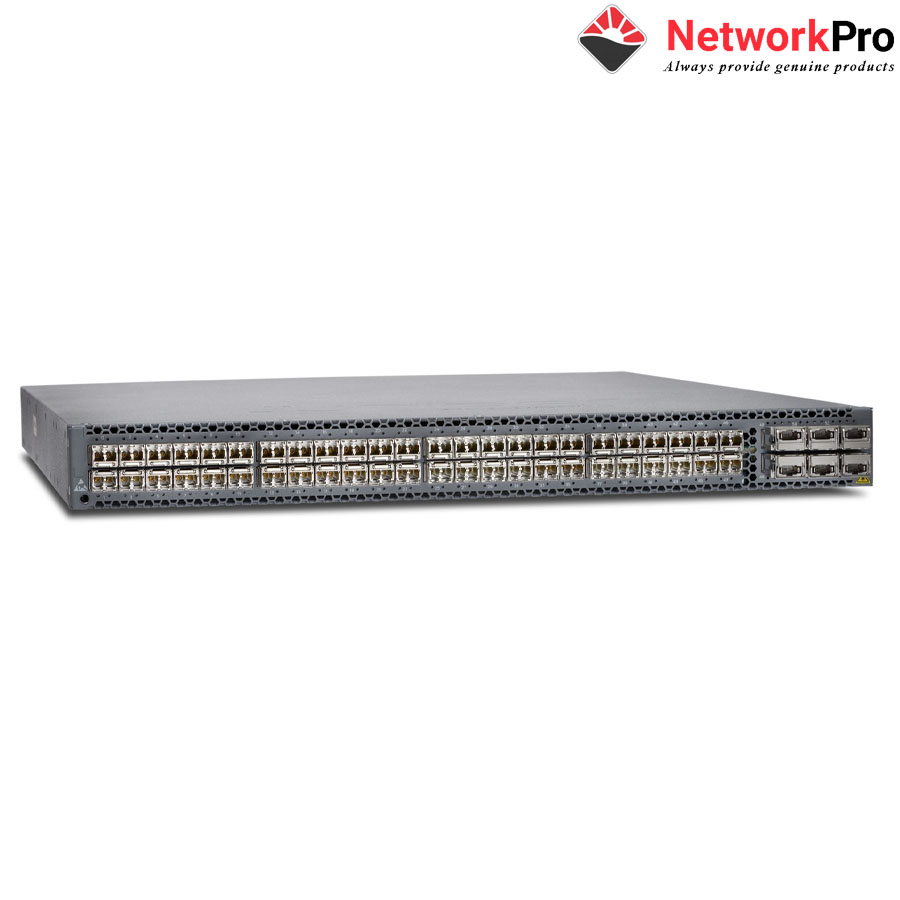
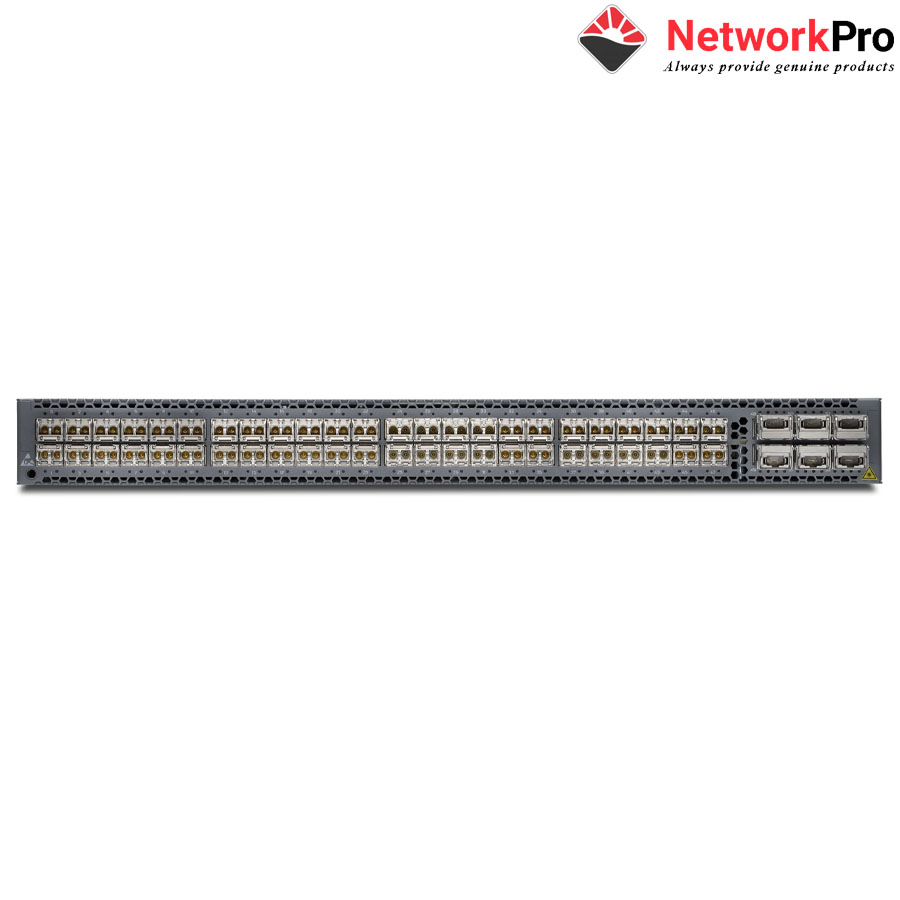
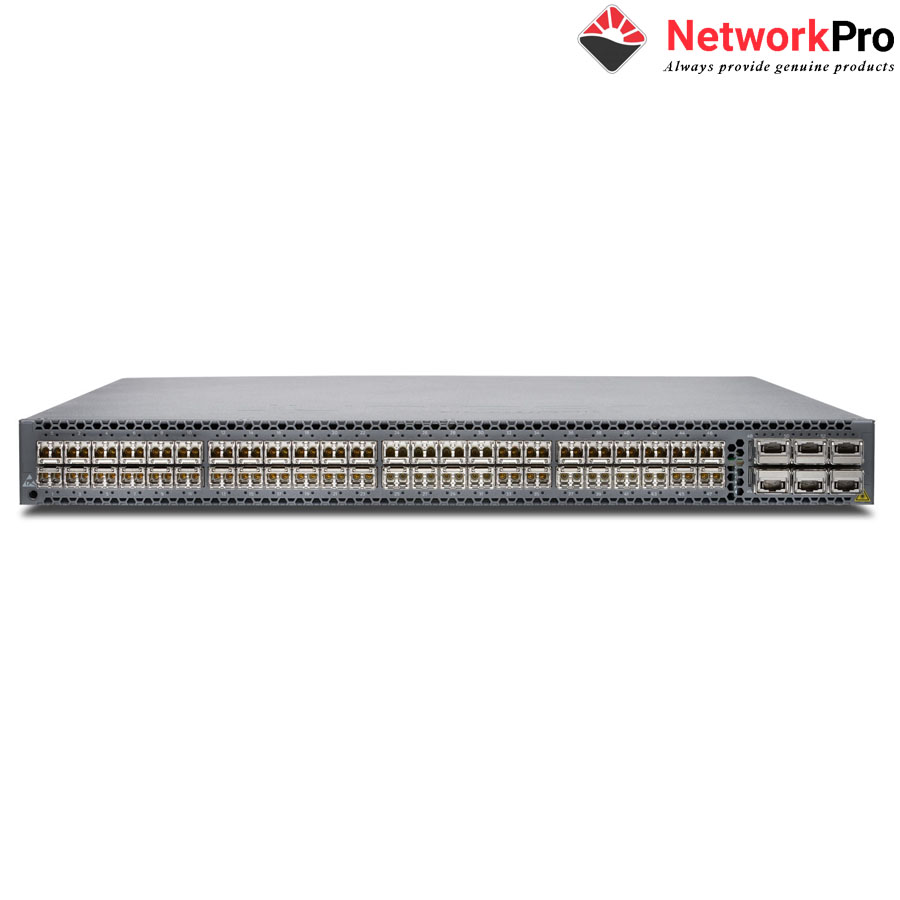
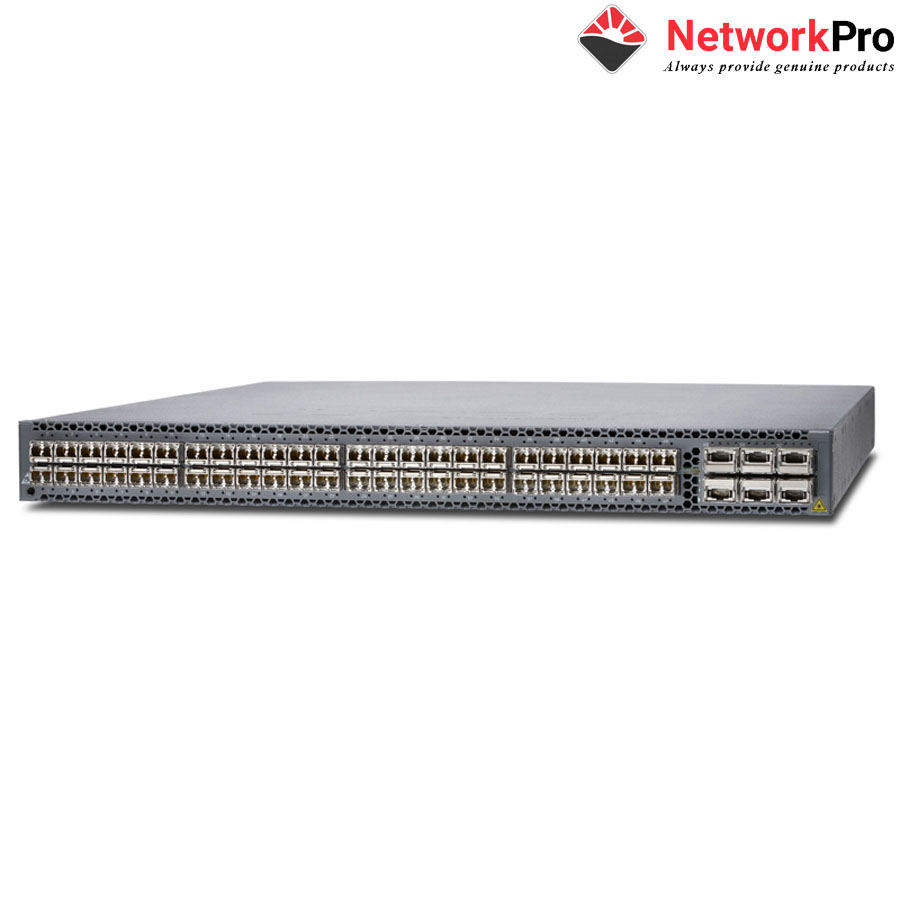
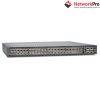
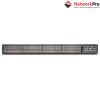
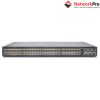
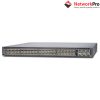
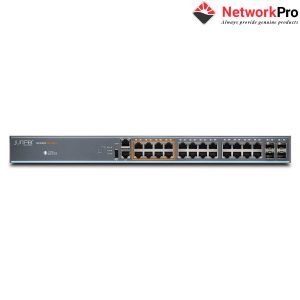
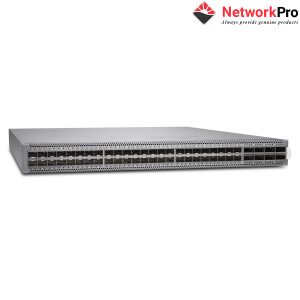
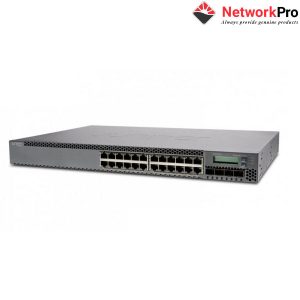
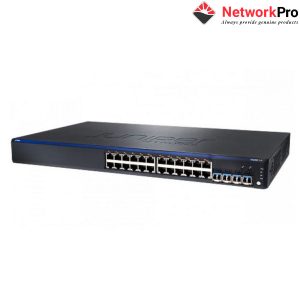
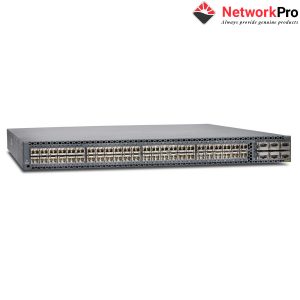




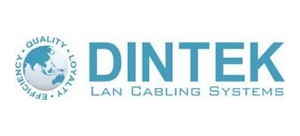
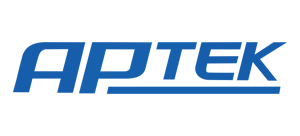



Đánh giá
Chưa có đánh giá nào.